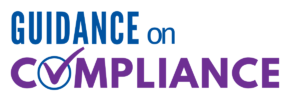Quality assessment and process improvement (QAPI) activities are an important part of providing quality patient care. The Centers for Medicare and Medicaid (CMS), as part of their conditions of participation, requires QAPI programs for hospitals and hospices. CMS has also proposed making them required for home health providers and skilled nursing facilities. Strong QAPI programs that result in exemplary clinical outcomes are a key mechanism by which providers can position themselves to be a preferred partner in any Accountable Care Organization (ACO) or bundled payment program. Yet, there are times when quality and process improvement activities don’t result in the expected outcomes of interest. Below are four common barriers to achieving quality outcomes:
1. Inadequate Investigation of the root cause of the problem.
It is easy to see a problem, or an area of poor performance, and jump immediately to saying, “We should be doing this,” or “We have to do an in-service.” Without a thorough investigation of the root cause of the problem, which includes engaging the people who are actually involved in the process(es) of concern, one can spend a lot of time and energy making changes in areas that won’t actually result in improvement.
2. Inadequate Implementation of the improvement strategy.
Activities such as creating a new form, sending out an email saying what needs to be changed, or providing an in-service by themselves will often not result in improvements. Effective implementation involves designing a strategy to not only develop and implement the change(s) identified in your root cause analysis, but includes strategies to ensure that the change “sticks” and becomes part of how you do business every day.
3. Lack of Measureable Results
A key principal of the improvement process discussed by the Institute for Healthcare Improvement (IHI) is captured in the concept of “how do you know that a change is an improvement?” Just like you measure vital signs in an ill patient, objective pre- and post-change process and outcome measurements are critical to monitoring the status of your QAPI program.
4. Incompatible organizational culture for change.
Peter Drucker, the management expert, often argued that a company’ s culture would trump any attempt to create a strategy that was incompatible with its culture. So, unless an organization’s leadership fully embraces the need for change, along with the strategy and goals of the specific change being implemented, the change will often fail. Organizational support is critical in achieving quality and process improvement.
There are a myriad of tools and resources available in books and online to help you increase your organization’s success in implementing quality and process improvement activities. LW Consulting can help you cut through the chaos and design a quality and process improvement program that works for you. We can also provide mentoring to your quality and process teams to improve their effectiveness.
LW Consulting, Inc. (LWCI) offers a comprehensive range of services that can assist your organization in maintaining compliance, identifying trends, providing education and training, or conducting documentation and coding audits. For more information, contact LWCI to connect with one of our experts!

